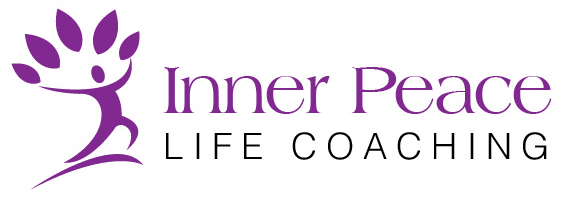Breaking the Cycle of Addiction and Gain Control
The most crucial step towards recovery is acknowledging that there is a problem. Addiction has been defined as the “fact or condition of being addicted to a particular substance or activity.” An individual goes through a process of pre-contemplation, contemplation, preparation, action, maintenance and finally termination in an addictive cycle.
It takes courage to stare addiction in the face and decide that you are no longer a slave to your weaknesses.
That you are reading this right now, I can assume that you would like to change your current lifestyle. Below are key action steps that will enable you to take stock and gain greater control over your choices.
Identify Triggers– You are in a winning position already if you are self-aware. Specific social settings and interactions are bound to cause a swift escalation, and you might find yourself in the same “situation” you were desperately trying to escape. Identifying triggers is the number one step if you intend to break a negative pattern.
Journal– You might say, Wait, What? Research has proven that writing down your action plan can strengthen your brain’s capacity to gravitate towards the positive. It creates a positive image, and every single time you are faced with a dilemma, your mind inevitably presents the best option. Repeat this a couple of times, and before you know it, decision-making will become effortless!
Set a Date– Make a tough decision to bring about a lasting transformation and set an end date. Be Ruthless with yourself. If possible, take the assistance of an accountability partner, someone who will cheer you on and criticize you if you slack off. More often than not, procrastination robs us of living our best life.
Gradual Gains– Nothing happens overnight. When the end goal is letting go of a bad habit, focus on gradual progress. Reward the minutest effort. That will strengthen your resolve.
Renew your Environment– It is an uphill climb if you are trying to make progress while the environment continues to be toxic. If certain people or situations exacerbate the problem, you must take a bold stand and remove yourself from the scene.
Be Conscientious– Nothing like persistence. Too many people had quit at the one-yard line just when victory was in sight. The problem is that an individual enters into a deep depression when there is no reward after all that effort. Now there is no motivation to try again. Don’t let that happen to you. Encourage yourself by saying, “you are in it to win it.”
Idle Mind- Devil’s Workshop– Fill your schedule to the brim. Go out with your friends and colleagues for some downtime, watch a movie, or go on a vacation. How about Learning a new skill or exploring a new Course. Idle time management is crucial on the road to recovery.
Monitor your Progress– There might be instances of relapse from time to time. Don’t let that dissuade you. Acknowledge that you are trying your best and make a fresh start the following day. If you keep at it, you will be surprised at how much you have accomplished and how far you have come.
Seek Help– Research support groups, interact with mentors, and read about how people are handling the addiction that you are currently facing. Read Success stories. Meet people who have successfully overcome a harmful lifestyle. There is no shame in reaching out. It might prove to be the wisest decision.
Make an Appointment– Schedule an appointment with a skilled therapist knowledgeable on NLP or Coaching based on Cognitive behavior therapy, Gestalt techniques, and behavioral therapy. Be frank with your concerns and welcome their feedback.
Exercise– “There is no depression buster as effective for me as exercise,” Says mental health advocate Therese J Borchard. Exercise enhances overall mood and productivity. Not only that, it has been proven to improve self-esteem as well.
The road to recovery is not easy. You are not alone in this fight. When you seek help, you will gradually feel empowered to make the right decisions. Too many people sadly give up, not realizing that there are many resources and trusted professionals with a stellar track record of changing lives.
While there are plenty of other strategies that people have successfully used to conquer addiction, I have just outlined a few as “food for thought” that might hopefully encourage you to read more and take personal responsibility toward creating a brighter, healthier future for yourself!
You can book an appointment for a free session to discuss about your addiction related issue and choose to Break the Cycle of Addiction and Gain Control
Sajid Ahamed is a “Certified trainer of NLP” and organizes John Grinder-approved training in India and the Middle East. He is one of the few ITA (International Training Academy) trainers in the world who are authorized to run New Code and Master Practitioner NLP Certifications in India and the Middle East. He has more than 1000 hours of coaching experience and is an ICF accredited Professional Certified Coach (PCC). He is also certified and authorized to conduct Emotional intelligence Assessments by Six Seconds, international. He is a firm believer in high performance. He enjoys engaging in powerful conversations that lead to effective learning and results. Sajid empowers his clients to achieve their most significant potential and evolve into their personal best version through emotionally intelligent coaching.
He is presently pursuing his PhD in Alternative therapies and Integrative Medicines and completed studies in Psychotherapy from Chicago School of Professional Psychology.
He is also the Founder of Inner Peace Life Coaching Pvt. Ltd, India, which specializes in Coaching in variety of Modalities like NLP, EFT, EI and Energy coaching.
To be updated with latest trends in Coaching and psychotherapy, join our Facebook Private group – https://www.facebook.com/groups/findinnerpeace
For Further networking, follow us on
https://www.facebook.com/innerpeacelife/














